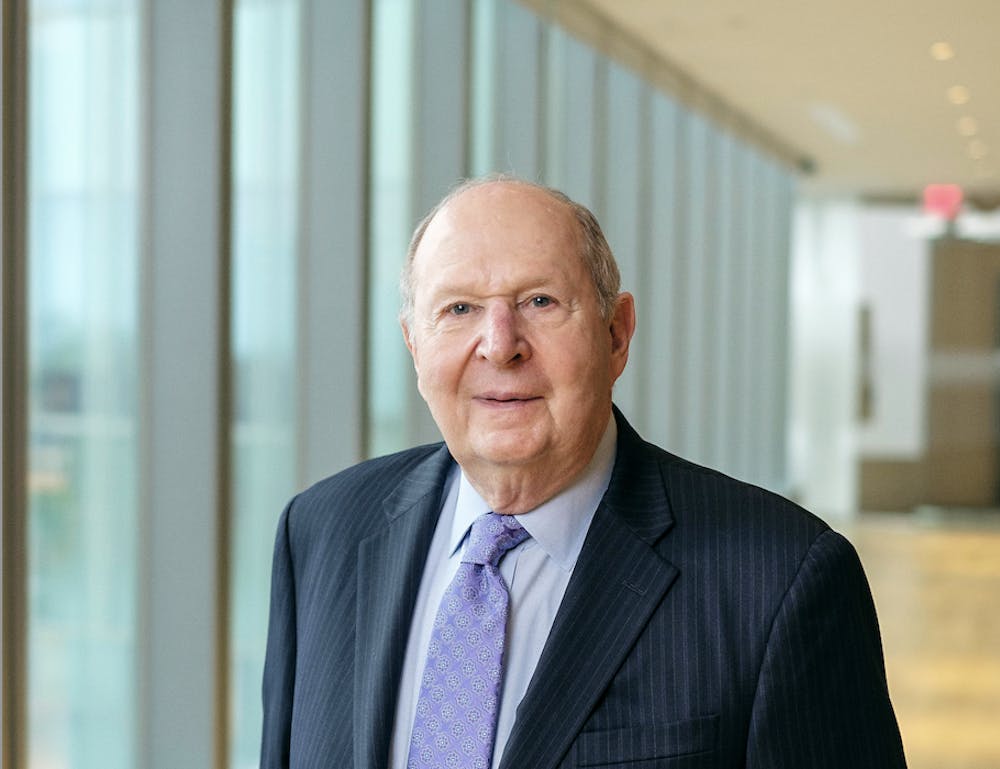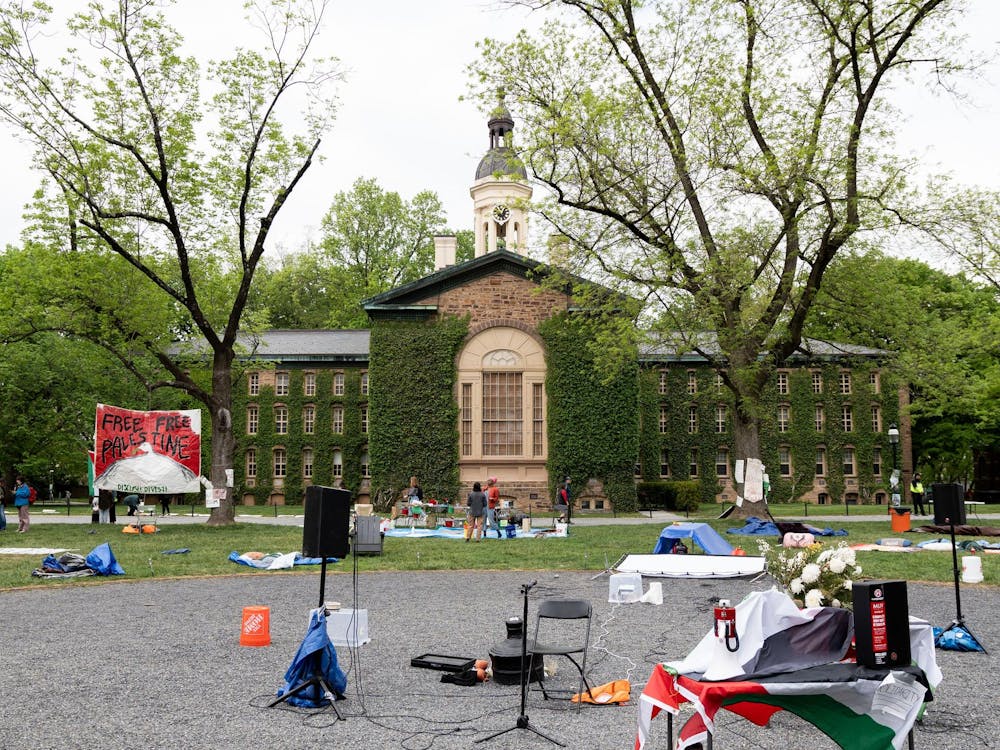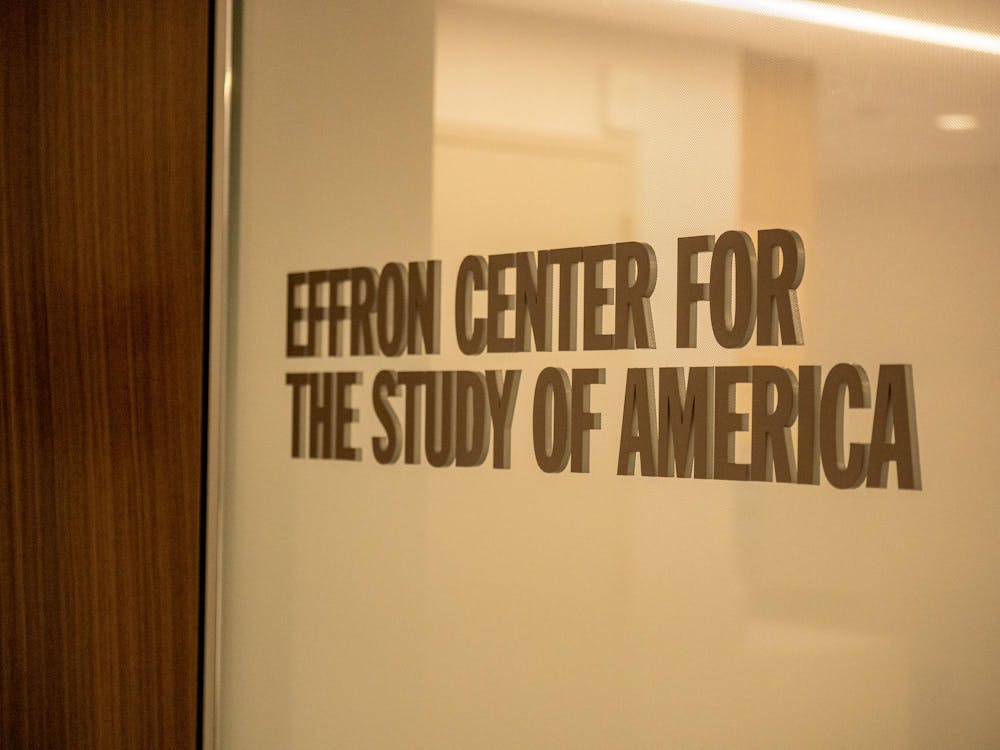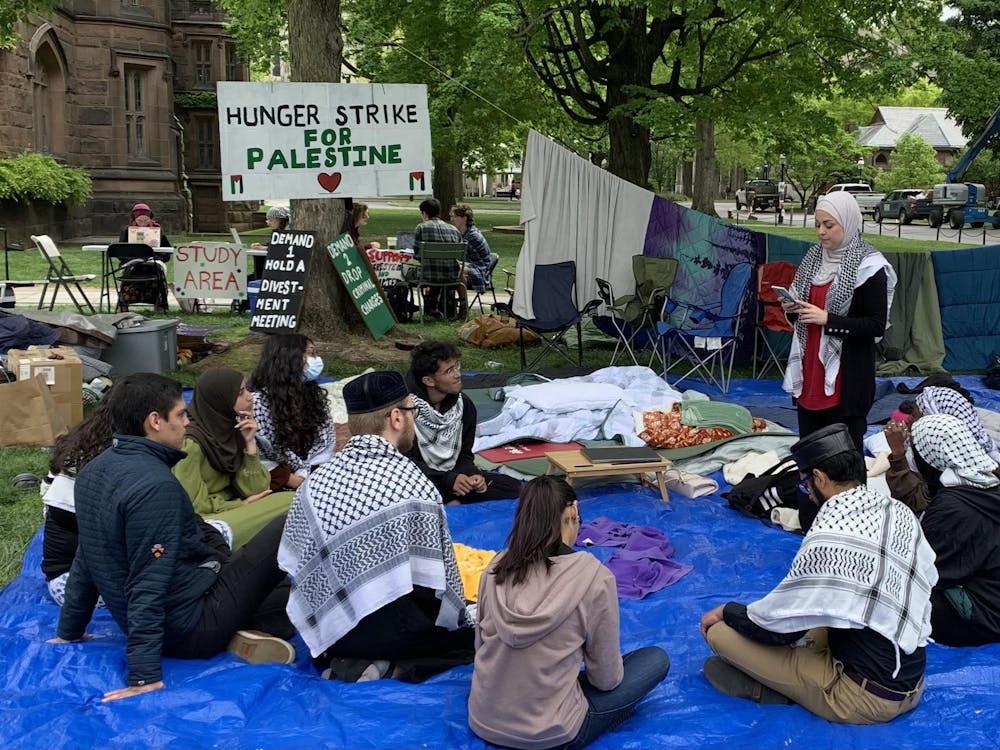Investor and Princeton graduate alumnus Louis A. Simpson GS ’60, whose philanthropy endowed the Louis A. Simpson International Building and the Louis A. Simpson Center for the Study of Macroeconomics, died at his residence in Illinois on Saturday, Jan. 8. He was 85.
Once identified as a successor to Warren Buffett, Simpson was chief executive for capital operations at Geico Insurance for nearly two decades. His philanthropy in terms of higher education spans both Princeton and Northwestern University.
Richard Rogerson, Professor of Economics and Public Affairs and Director of the Louis A. Simpson Center for the Study of Macroeconomics, spoke in memory of Simpson.
“I would say that the three words that really come to mind [are] generous, kind, and supportive,” Rogerson told The Daily Princetonian. “In all our interactions, he was very kind. He was never trying to direct what we do [at the center] and was always looking for ways to support us.”
Louis Allen Simpson was born to Irving and Lillian (Rubin) Simpson on Dec. 23, 1936, in Highland Park, Ill. He graduated from Highland Park High School, where he was ranked sixth out of a class of over 200 students, according to Simpson’s records in the Princeton University Archives.
He studied engineering at Northwestern University for one year before transferring to Ohio Wesleyan University, where he graduated with a bachelor’s degree in economics and accounting in 1958. At Ohio Wesleyan, Simpson was a member of the senior class council and the radio station staff; he spent one summer as a truck driver and another as an accountant.
Simpson then entered Princeton University as a graduate student in economics. On his application to the graduate college, Simpson wrote that he looked forward to a career in “college teaching.”
A letter of recommendation written on his behalf by an economics professor who stated that “the educational community will suffer a real loss if Mr. Simpson chooses a non-academic career.”
In 1960, Simpson co-authored a paper titled “Sources of Wage and Salary Data,” published in Industrial and Labor Relations Review; one of his co-authors was former president of the University William G. Bowen GS ’58.
After receiving his master’s degree, Simpson taught at Princeton as an economics instructor from 1961 to 1962, including courses in introductory and labor economics.
Simpson left the University before finishing his Ph.D. and entered the business world. He worked at the Chicago investment firm Stein Roe & Farnham and the Los Angeles money manager Shareholders Management before being named chief executive of Western Asset Management.
In 1979, Simpson became a senior vice president at Geico, where he would become widely known for his investment triumphs. He was named chief executive for capital operations in 1993 and remained in that role until he retired in 2010.

While at Geico, Simpson cut down the number of Geico’s holdings from 33 to 10 companies, while their total value expanded from $280 million to $1.1 billion. From 1980 to 2004, Simpson’s portfolio beat the S&P 500 Index in all but six of the 24 years.
The prominent billionaire investor Warren Buffett, whose Berkshire Hathaway Inc. owns Geico, once named Simpson as someone who would be able to succeed him in directing all of Berkshire Hathaway’s investments.
Simpson is well known for his philanthropy in education and other sectors. He and his wife Kimberley are trustees of Northwestern University, where his donations have totaled over $250 million, including support for biomedical research and the professional schools.
Henry Bienen, President Emeritus of Northwestern University and former Dean of the School of Public and International Affairs (SPIA) praised Simpson for his support for various institutions and individuals.
“Lou’s legacies are many and he will go down as a great and prudent investor, generous supporter of many charities and institutions, and friend and mentor to many people, from established leaders to those starting out,” Bienen remarked. “I emphasize the latter because Lou cared about young people.”
Simpson’s $10 million gift to Princeton in 2015 established the Louis A. Simpson Center for the Study of Macroeconomics and his $20 million gift in 2016 culminated in the Louis A. Simpson International Building.
Economics professor Gene M. Grossman, who helped to facilitate the opening of the Simpson Center while he was chair of the economics department, commented on Simpson’s generosity.
“Lou was incredibly generous and incredibly humble, considering his success,” Grossman wrote in an email to the ‘Prince.’ “He was also intellectually curious, which explained I think his interest in funding academic research.”
Grossman also noted Simpson’s forthrightness.
“He was also no-nonsense: the ‘negotiation’ of the terms of his gift to Princeton took all of two phone calls over two or three days; once he was convinced that my proposal of a center for studying macroeconomics was a worthwhile one, it was done,” he said.
Simpson is survived by his wife, Kimberly Querrey; his three sons, Irving, Kenneth, and Edward ’90; five grandchildren; and three great-grandchildren.
Allan Shen is a senior news writer who often covers research and obituaries. He can be reached at fuluns@princeton.edu, or on Twitter at @fulunallanshen. He previously served as an Associate News Editor.









